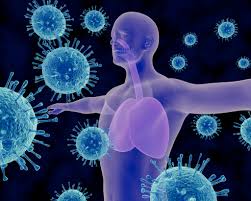In today’s fast-paced world, it’s easy to overlook the invisible threat that surrounds us every day: air pollution. While we go about our lives, the air we breathe is becoming increasingly contaminated with pollutants that can have serious consequences for our health. In this article, we will explore the far-reaching effects of air pollution on our well-being and discuss ways we can collectively combat this pressing issue for a healthier future.
The Impact of Air Pollution on Health
Air pollution is a complex mixture of gases, particles, and chemicals that can be harmful when inhaled. These pollutants can originate from various sources, including industrial processes, transportation, and natural events. The adverse health effects of air pollution are well-documented and extend far beyond respiratory issues. Here are some of the key health concerns associated with air pollution:
1. Respiratory Problems:
The most immediate impact of air pollution is on the respiratory system. Fine particulate matter (PM2.5) and ground-level ozone can irritate the lungs and exacerbate conditions such as asthma and bronchitis. Long-term exposure can lead to reduced lung function.
2. Cardiovascular Disease:
Air pollution has been linked to an increased risk of heart attacks, strokes, and other cardiovascular diseases. It can contribute to the development of atherosclerosis (hardening of the arteries) and high blood pressure.
3. Cancer:
Certain air pollutants, such as benzene and formaldehyde, are known carcinogens. Prolonged exposure to these substances can increase the risk of developing lung cancer and other malignancies.
4. Neurological Effects:
Emerging research suggests that air pollution may have adverse effects on the brain, potentially contributing to cognitive decline, Alzheimer’s disease, and other neurodegenerative disorders.
5. Preterm Births and Low Birth Weight:
Pregnant women exposed to air pollution may face a higher risk of delivering preterm or having babies with low birth weights, which can lead to various health complications for the child.
6. Reduced Life Expectancy:
Studies have shown that prolonged exposure to high levels of air pollution can reduce life expectancy, particularly in regions with severe pollution problems.
Taking Action for Cleaner Air
Given the profound impact of air pollution on our health, it’s imperative that we take steps to mitigate this issue. Here are some strategies and initiatives aimed at improving air quality:
1. Transition to Clean Energy:
Shifting from fossil fuels to clean energy sources like wind, solar, and nuclear power can significantly reduce air pollution from power plants and reduce greenhouse gas emissions.
2. Improved Transportation:
Investing in public transportation, electric vehicles, and alternative fuels can help reduce emissions from the transportation sector, a major contributor to air pollution.
3. Urban Planning:
Designing cities with a focus on walkability, bike-friendly infrastructure, and green spaces can reduce the need for car travel and decrease air pollution in urban areas.
4. Air Quality Monitoring:
Enhancing air quality monitoring systems allows us to better understand pollution sources and take targeted actions to address them.
5. Regulations and Policies:
Governments at all levels should implement and enforce air quality standards and regulations to limit emissions from industries and vehicles.
6. Individual Efforts:
We can all contribute to cleaner air by reducing our carbon footprint through actions like conserving energy, reducing waste, and using eco-friendly products.
Conclusion
Air pollution is a silent and insidious threat to our health, but it’s a challenge we can overcome. By recognizing the far-reaching consequences of polluted air and taking collective action, we can breathe easier and pave the way for a healthier future. It’s time to prioritize clean air as a fundamental human right and work together to combat air pollution for the well-being of ourselves and future generations.






























